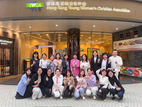On September 22, 2018, Chinese Vice Foreign Minister Wang Chao and Monsignore Antoine Camilleri, the head of the Vatican delegation, the Holy See and the Deputy Minister of Relations, signed a provisional agreement on the appointment of the bishops in a talk held in Beijing, according to the website of the Chinese Ministry of Foreign Affairs. Both China and the Vatican will continue to maintain communication and promote the progressive improvement of their bilateral relations.
After the signing of the agreement, the Vatican also issued an announcement stating that the provisional agreement was the outcome of gradual and close-knit effort and was signed after careful discussion through a lengthy process since it involves the bishop's appointment, which is very important to the life of churches, and this creates opportunity for a wide range of cooperation between the two parties in the future. "The common expectation of both parties is that this agreement will promote a fruitful and far-sighted bilateral dialogue and make a positive contribution to the Catholic life in China, the well-being of the Chinese people and peace in the world."
The relationship between China and the Roman Catholic Church dates back to the Yuan Dynasty when the Pope sent an envoy to the Mongol Empire in an attempt to persuade the Mongols to convert to Christianity. However, after the demise of the Yuan Dynasty, the relationship crashed to a halt.
After Matteo Ricci came to China, he actively dived deep into the Chinese culture and laid the foundation for the spread of Christianity in China. But soon after it had a strong following, there was the Chinese Rites controversy. The focus of the debate was how to translate the title of "God" and how to treat traditional Chinese customs alongside the faith.
In 1700, Emperor Kangxi intervened in the ceremonial dispute, arguing that worshipping ancestors belonged to Chinese culture, not a religious activity. However, at that time, the Pope prohibited Chinese believers from worshipping their ancestors and offering sacrifices. Emperor Kangxi was furious after learning about it and began to expel the missionaries against Chinese etiquette. It was not until 1939 that the Holy See revoked all bans on etiquette and ended the debate that lasted more than 300 years.
After the founding of the People's Republic of China, the Vatican intervened in China's internal affairs and opposed the Chinese Catholic Patriotic Association because of its activities not sanctioned by the church: specifically, the appointment of bishops.
In recent years, although the Vatican hopes to improve relations with China, it still maintains "diplomatic relations" with Taiwan. For several times prior to his retirement, Pope Benedict XVI has hinted that the church should improve relations with China. In this regard, the Chinese government's stand is: The Vatican must sever the so-called "diplomatic relations" with Taiwan, recognize that the government of the People's Republic of China is the sole legal government of China and that Taiwan is an inalienable part of China's territory. The Vatican must not interfere in China's internal affairs, including interfering in China's internal affairs in the name of religious affairs.
Since Pope Francis's assumption of the office in 2013, he has sent a friendly signal to China on many occasions.
In March 2014, Pope Francis first discussed the Chinese issue in an interview with the Italian media. He revealed his experience with Xi Jinping via letters. Francis said that he had written to the Chinese president and received a reply. He was the first pope who revealed that he had received a reply letter from any Chinese leader.
In August 2014, during his visit to South Korea, the Pope proposed to strengthen diplomatic contacts with Beijing and is willing to visit China. On the way to South Korea, the Pope passed Chinese airspace and sent a greeting message to the Chinese president and the Chinese people in accordance with the court etiquette, becoming the first Vatican leader to complete the move. This is seen as a step forward in the relationship between China and the Vatican.
On February 2, 2016, the Aisa Times published an exclusive interview with Pope Francis, the first public interview with the Pope of Latin America on the topic of China. He said that the world does not need to be afraid of China. At the same time, on the occasion of the Chinese Spring Festival, he wished all Chinese a very happy new year and expressed his admiration for Chinese culture.
At the previous regular press conference of the Chinese Foreign Ministry, the spokesman also repeatedly responded to questions from reporters about China-Vatican relations: "Regarding China-Vatican relations, China has always been sincere in improving relations with the Vatican and has made unremitting efforts. At present, the communication channels between the two parties are smooth and effective. We are willing to continue a constructive dialogue with the Vatican on the basis of relevant principles and work together in a positive direction, to promote the continuous and progressive improvement of the relationship between the two sides. We also hope that the Vatican can adopt the same flexible and pragmatic attitude and create favorable conditions for the improvement of bilateral relations. "
- Translated by Jake Jason











